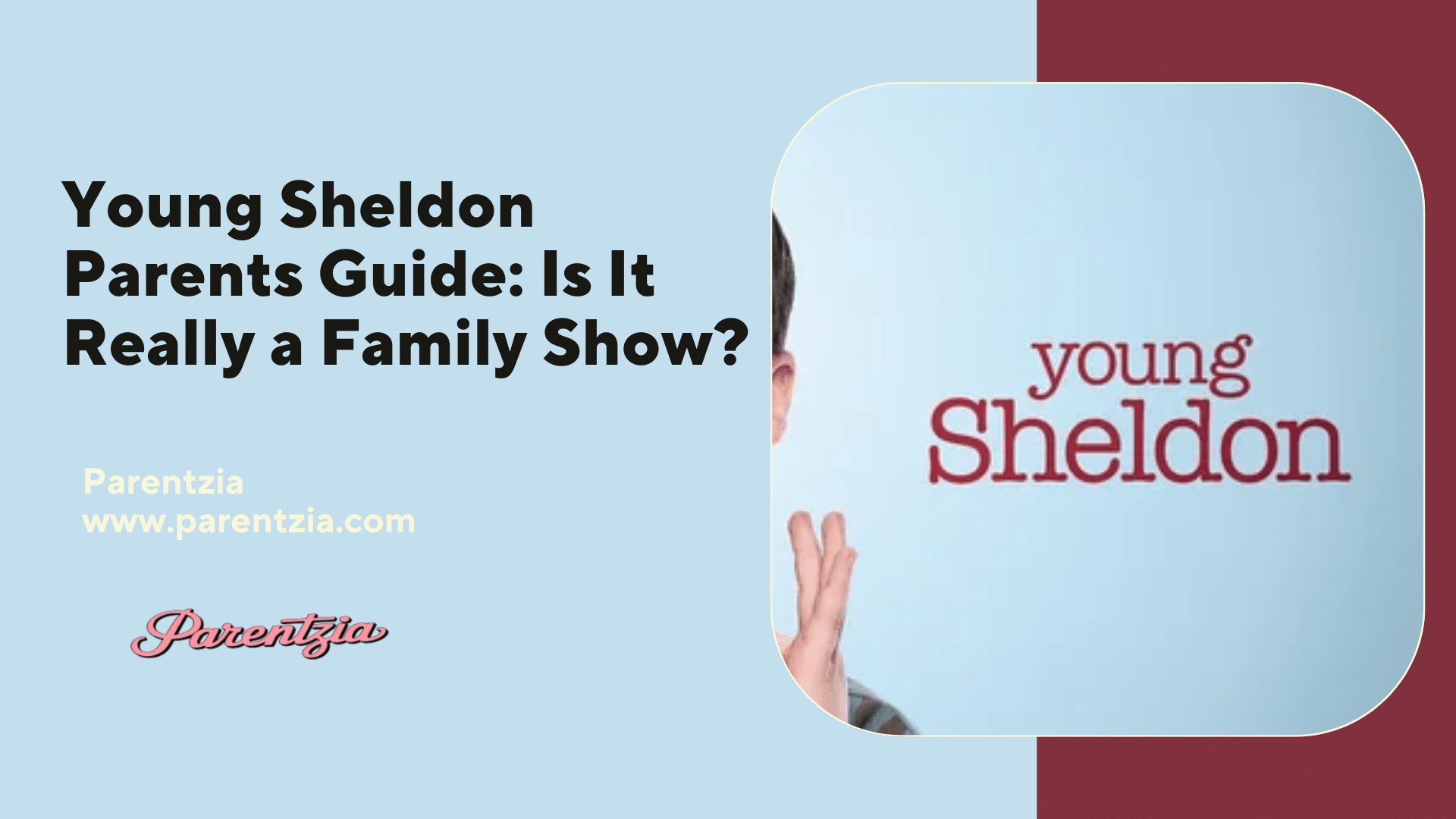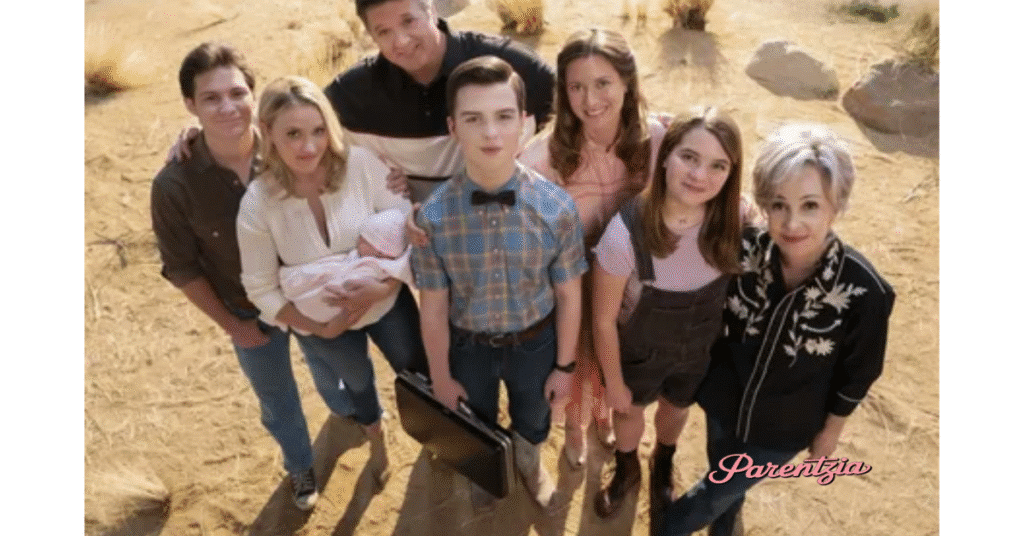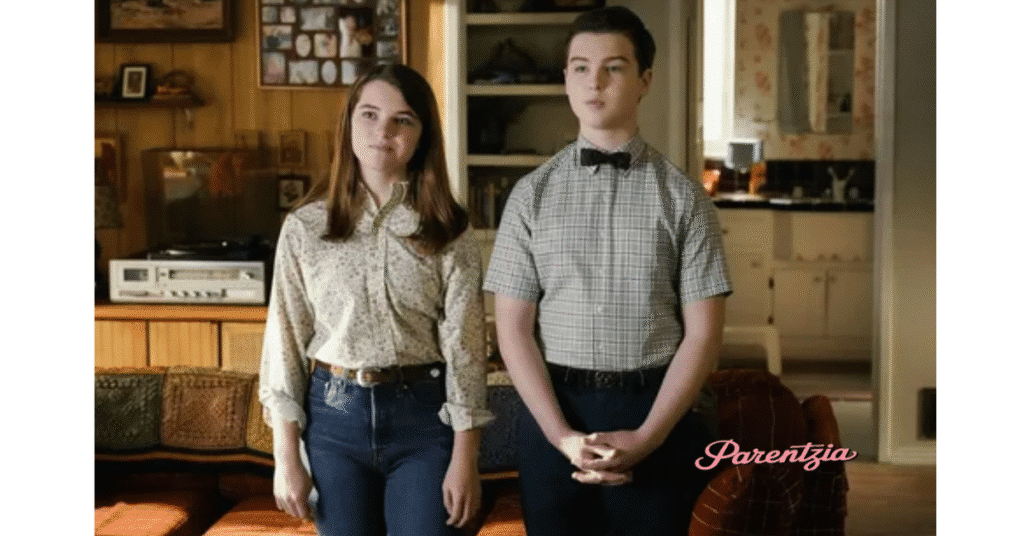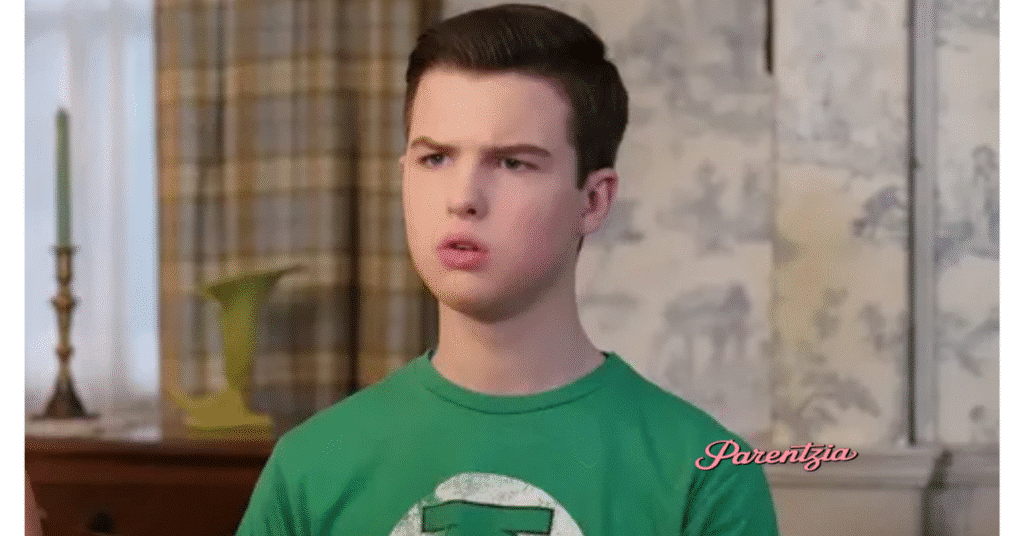
One Less Thing to Remember
Parentzia helps you keep everything about your kids organized—without juggling apps or mental notes.
Join the early access list and see how calm organization feels.


Parentzia helps you keep everything about your kids organized—without juggling apps or mental notes.
Join the early access list and see how calm organization feels.

The Big Bang Theory spin-off, Young Sheldon, has sparked quite the debate among parents. While it features a child protagonist and a charming Southern family, many wonder: Is Young Sheldon appropriate for kids? This blog dives deep into the content, tone, and themes of the show to help parents make an informed decision.
What Is Young Sheldon About?
Young Sheldon is a period comedy that centers on a 9-year-old boy genius, Sheldon Cooper, growing up in East Texas during the late 1980s and early 1990s. The series serves as a prequel to The Big Bang Theory and explores Sheldon’s academic achievements, social struggles, and quirky family dynamics.
While the series has the structure of a family sitcom, it includes children but isn’t for children.
Main Themes:
Despite the kid-led narrative, many jokes thrown in are aimed at adults.
you might also like “Oppenheimer Parents Guide: What Every Parent Must Know”

Young Sheldon TV Rating Explained
Most episodes of Young Sheldon are rated TV-PG, but some are marked TV-14 due to more mature content.
TV-PG: Parental guidance suggested TV-14: Parents strongly cautioned
Table: Episode Rating Breakdown
| Season | Avg. Rating | Notable Episodes with TV-14 |
| 1 | TV-PG | Episode 7 |
| 2 | TV-PG | None |
| 3 | TV-PG | Episode 16 |
| 4 | TV-PG/TV-14 | Episodes 4, 9, 11 |
| 5 | TV-14 | Multiple episodes |
| 6-7 | TV-14 | Frequent |
As the characters age, so do the themes—leading to more Young Sheldon mature content.
Is Young Sheldon Appropriate for Kids?
That depends on their age and maturity level. While Young Sheldon lacks explicit scenes, it features implied intimacy, adult themes, and religious conflicts.
“The language, such as the word ‘damn’, may not sit well with younger viewers.”
“Not the best subject matter for younger children,” especially when implied intimacy becomes part of the plot.

Young Sheldon kids may appear frequently, but the situations are often geared towards adult viewers.
Character Breakdown: Role Models or Not?
Let’s break down the major characters to help parents assess who might be a positive influence and who might not:
| Character | Role Model Quality | Notes |
| Sheldon | Mixed | Brilliant but rude and condescending at times |
| Mary (Mom) | ✅ Mostly Positive | Loving, but rigid and highly religious |
| George Sr. | ❌ Flawed | Good-hearted but drinks, argues, and lies occasionally |
| Missy | ✅ Relatable | Funny, grounded, emotionally intelligent |
| Georgie | Growing Up | Teen pregnancy storyline; improves with time |
| Meemaw | Questionable | Encourages rebellion, drinks, and flirts |
Young Sheldon TV-PG vs TV-14: What Changes?
As the show shifts from TV-PG to TV-14, expect:
Tweens and teenagers could certainly benefit from the later seasons, but younger children may struggle to grasp the context.
Educational Value vs. Content Concerns
“Just because I’m smarter than everyone doesn’t mean I should hide it—it means they should catch up.”
This kind of dialogue may promote arrogance if not discussed with kids.

Season-by-Season Evolution
The content matures as Sheldon and his siblings grow older.
| Season | Themes Introduced |
| 1 | School, religion, family dinners |
| 2 | Bullying, peer pressure, family traditions |
| 3 | Loss, failure, early crushes |
| 4 | Romantic relationships, rebellion |
| 5 | Georgie and Mandy, teen pregnancy, workplace dynamics |
| 6-7 | College life, adult choices, divorce, grief |
It’s a situational comedy not really going to work for younger children by Season 5.
Is Young Sheldon Child-Friendly? Age-by-Age Guide
| Age Group | Verdict | Reasoning |
| Under 10 | Not Recommended | Situational humor, sarcasm, adult jokes |
| 10–12 | ⚠️ With Caution | Need for parental context, some mature themes |
| 13–15 | ✅ Suitable | Themes relevant for teens; mild caution on some topics |
| 16+ | ✅ Perfectly Fine | Fully equipped to understand adult themes and irony |
If your child is under 10, decide on whether you want to expose younger children to sarcasm, family drama, and intellectual snobbery.
What Parents Are Saying
Reviews from Common Sense Media echo these sentiments: parents are split.
Parental Controls: Keep It In Check
If you’re unsure about letting your kids watch the show:
Alternatives to Young Sheldon for Tweens
If Young Sheldon feels too mature, consider:
| Show | Why It Works |
| Phineas and Ferb | Genius kids, light humor, musical fun |
| Just Add Magic | Friendship, mystery, family values |
| Annedroids | STEM-based, curiosity driven |
| A Series of Unfortunate Events | Smart, witty, appropriate for older tweens |
Final Verdict: Should Kids Watch Young Sheldon?
Young Sheldon walks a tightrope. It’s a family sitcom in format but leans heavily into adult themes. It includes children but isn’t for children.
If you’re considering it for your child, ask yourself:
For many parents, Young Sheldon can be a teaching tool. But it’s not a plug-and-play family show like Full House or Boy Meets World.
FAQs: Young Sheldon Parents Guide
Is Young Sheldon appropriate for kids?
It depends. For kids 13 and older, yes. For younger children, it requires guidance due to mature themes.
What is the Young Sheldon TV rating?
TV-PG to TV-14, depending on the episode.
What’s the difference between Young Sheldon TV-PG vs TV-14?
TV-14 episodes contain more mature conversations, romantic elements, and emotional tension.
Is Young Sheldon child-friendly?
Only partly. It includes children, but many themes and jokes target adults.
What age is Young Sheldon suitable for?
Best for ages 13 and up, but with parental oversight.
Bottom line: When considering Young Sheldon for your family, know this: it’s smart, funny, and heartwarming — but you need to be present. Kids might laugh, but they may also need guidance through some pretty big themes.